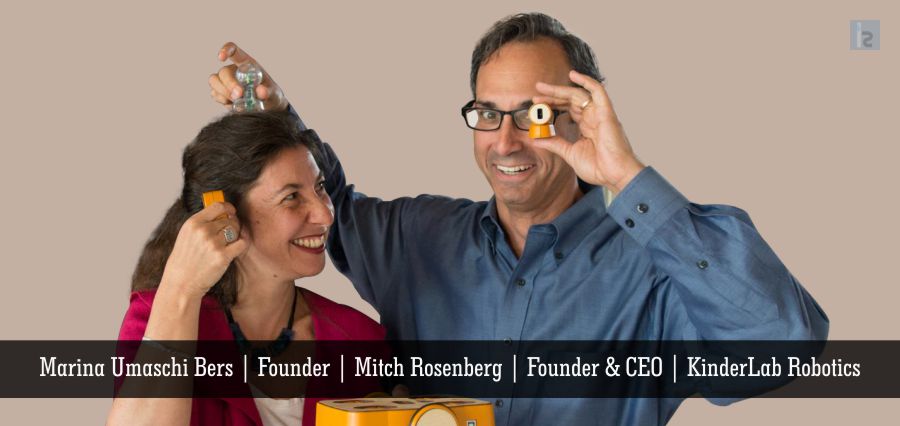Technological advancements are enticing the next generation like nothing else. Be it the Internet, advanced gadgets like smartphones, laptops, or robots, technology is capable of transforming everyone’s lives. These advancements are revolutionizing each and every sector.
Economically dominant and continually evolving sectors like Healthcare, Manufacturing and Education are searching for a better technological hand over the past decade. Seamless deployments of these technologies has improved the sectors exceptionally, and proven to be a game-changer. The continually evolving education sector has particularly shown a heightened interest and invested heavily in AI and Robotics. Many of the global robotic companies have created dependable robotic solutions but there is lot more to be done.
Marina Umaschi Bers, a professor at the Eliot-Pearson Department of Child Study and Human Development, is a researcher on early childhood development for over fifteen years. She identified an absence of reliable robotic solutions for young learners of ages 4 to 7. With a vision to provide STEM/STEAM products that promote Universal STEM Literacy through a fun, educational STEM platform for early learners, she founded KinderLab Robotics, along with its CEO, Mitch Rosenberg. KinderLab offers a robotic kit, KIBO, which allows 4-7-year-olds to build, program, decorate, and run their own robot. KIBO is helping kids across the world to learn Science, Technology, Engineering, Arts and Mathematics (STEAM) with proven efficiency. It enables a child to have computational thinking at young age.
STEAM Learning is Now Fun, Imaginative and Easy
KIBO is specifically designed for young children aged 4-7 years old to make STEAM learning fun, imaginative and easy. Even the youngest learners can playfully discover complicated mathematical and scientific concepts by coding with wooden building blocks, creating sequences, and learning design processes.
KinderLab also offers a full suite of teaching materials, including curriculum guides. These guides enable in classroom STEAM curriculums like arts, literature, performance, architecture, engineering, and more to connect with coding and robotics. KinderLab Robotics offers creative activities, complete lesson plans, classroom tips, pictures, and linked videos that make learning a fun activity. All materials are designed to allow educators and students to engage and explore STEAM learning with robotics.
Creating an Exceptional Platform
There are many robotic companies that offer appropriate products for young children, but most emphasize on cute toys and gaming products. However, very few of them offer research-based products that enhance the learning experience, and products which focus on curriculum value are specifically designed for the youngest learners. Thus, KIBO has been an exception. It is the only robotic kit with a tangible code, wooden building blocks where the child can create sequences, that is ideal for young learners. KIBO does not require any screens or keyboards; and it’s the only robotic kit that integrates with curriculum in art, reading, history, and other studies with notable efficiency.
Additionally, KIBO helps kids improve their sequencing ability. A performance on standard assessments of sequencing ability is improved from 20-35% after an 8-week robotics and coding curriculum with KIBO. It bestows older children (6 to 7 Years) with an extraordinary ability to explore more complex CS concepts. Deployment of KIBO robots had very positive impact in STEM Fields and many of the popular global schools are employing the robots.
Inspiration behind Inception
KinderLab Robotics was incepted with the urge of ‘Marina Umaschi Bers’ to display her research on new technologies for young children on a global platform. During this period she was constantly questioned about the sample robotic kit that was used within her research with young children. Her friend and current CEO of KinderLab, Mitch Rosenberg, also had a dream to improve STEM education.
During a walk in Walden Pond, near Boston, Marina and Mitch discussed their desires, and decided to translate their dreams into reality. Bers and her devoted team developed both the theoretical foundation and the robotic prototypes, which with the support of the National Science Foundation became KIBO. A kick starter campaign launched in June of 2014 to globalize KIBO got a memorable response. This turned into the creation of KinderLab Robotics.
In addition to being a Co-founder and Chief Scientist at KinderLab, Marina also heads the interdisciplinary DevTech research group at Tufts University. Her research of over 15 years involves design and study of innovative learning technologies to promote positive youth development. She holds a Master’s degree in Educational Media from Boston University and a Master of Science and PhD from the MIT Media Laboratory.
Mitch Rosenberg is the CEO at KinderLab Robotics. He brings over thirty years of experience in the technology industry in engineering, marketing, product management and sales. He has executive experience at several successful technology firms, including robotics firms such as Automatix Inc., Kiva Systems and Rethink Robotics. Mitch received his BSEE and MSeE degrees from MIT and MBA from Boston University. Mitch’s expertise steers the vision and product development for the company.
More Innovative Modules and Teaching Materials to Catalyze STEAM Learning
Today, the company continues to enhance KIBO, its curriculum and playful extension modules. With KIBO thousands of children are able to improve their STEM learning.
Source :- The 10 Most Innovative Robotics Companies to Watch 2018


